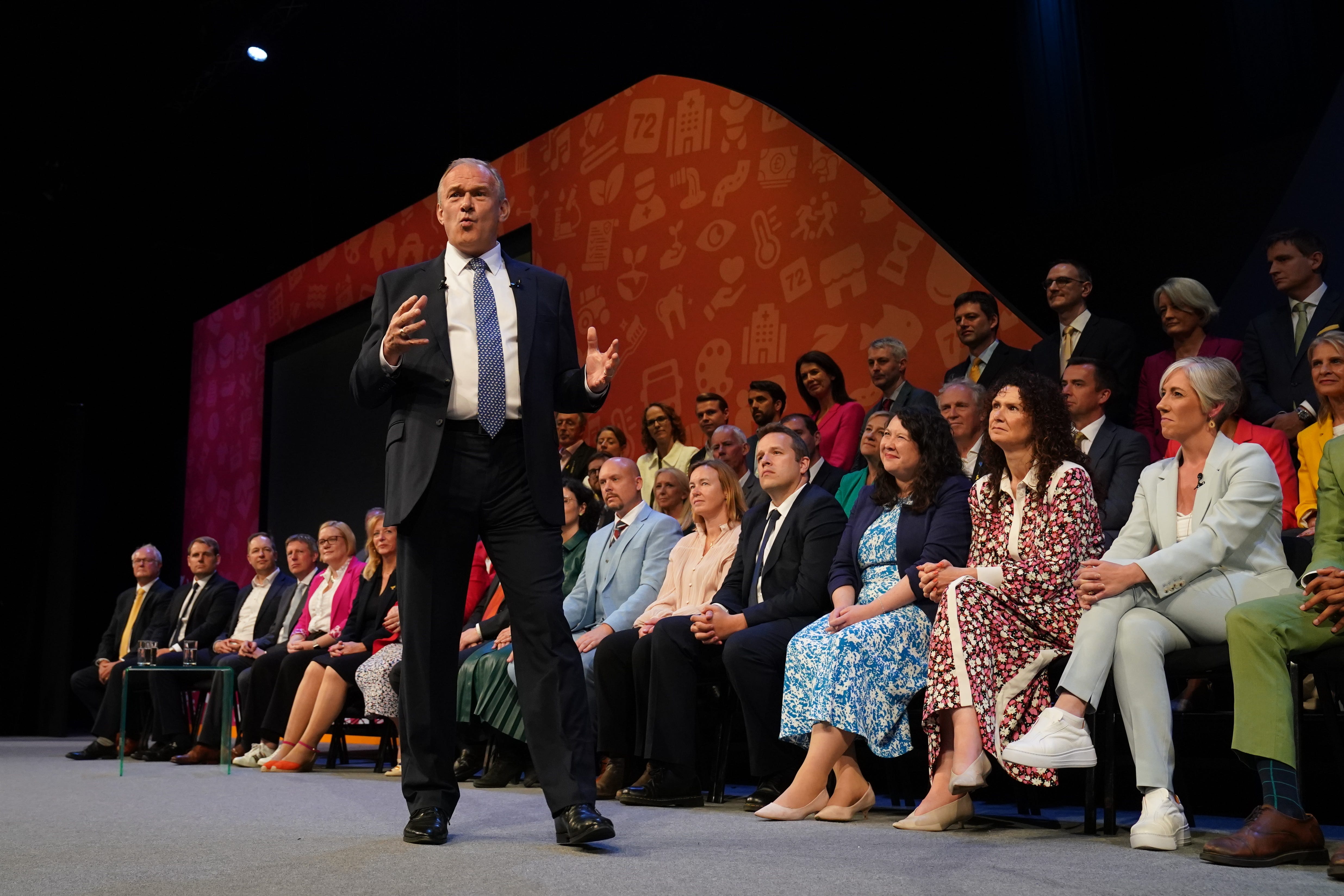Why both Labour and the Conservatives need to take the Liberal Democrats more seriously
The Tories need to woo voters who backed the Liberal Democrats in July’s election, rather than lurch to the right, writes Andrew Grice – and Keir Starmer’s party certainly needs to pay the party more attention...


John Major is right in his BBC interview: the Conservatives need to woo voters who backed the Liberal Democrats in July’s election, rather than lurch to the right and appeal to supporters of Nigel Farage’s Reform UK.
The former prime minister highlighted the reality many Tories deny: the party lost many more seats to the Liberal Democrats and Labour than Reform. He warned that a merger with Farage’s party would be “fatal” for the Tories. The four contenders for the Tory leadership should listen, but they won’t; Kemi Badenoch has called Reform voters “our people.”
Keir Starmer’s party also needs to pay the Lib Dems more attention. Some Labour MPs are dismissive of Ed Davey, even though his party won a spectacular 72 seats in July (up from 11 in 2019).
Some Labour figures tell me they will “never forgive or forget” the Lib Dems enabling “Tory austerity” in the 2010-15 coalition. They were irked by Davey’s criticism of Starmer in yesterday’s speech to the Lib Dem conference in Brighton, when he accused the PM of “pessimism and defeatism”. However, most of Davey’s fire was still aimed at the Tories. He wants to supplant them as the opposition.
You can see why: of the Lib Dems’ top 50 targets at the next election, 39 are held by the Tories, and only 10 by Labour. Davey’s mantra of “constructive opposition” will be a hard act to pull off. It will look weird to attack the opposition rather than the government, especially if Labour becomes very unpopular.
Appearing too close to Labour could damage the Lib Dems among the Tory-leaning voters they need. Some Lib Dem MPs want Davey to be more aggressive towards Labour. But his priority is to “finish the job” of dismantling the Tories’ blue wall in the south of England.
Prioritising the NHS and social care is good territory for Davey; it appeals to both left and right. Lib Dem hearts tell them to attack Labour from the left on denying the winter fuel allowance to 10 million pensioners. But their heads say “remember the blue wall” and it was interesting that, while urging Labour to raise capital gains tax, Davey opposed a rise in inheritance tax, saying people’s homes should not be subject to it.
For now, the luxury of opposition allows the Lib Dem leader to keep his options open, but he may find sitting on the fence a painful stunt when the next election comes. Labour can’t afford to be too dismissive of the Lib Dems because its own support is wide but shallow – and, in such volatile times, it could easily lose in 2029.
Although Labour doesn’t want to talk about it now, if Starmer had won only a small majority in July, I suspect he would have relied on the support of Lib Dem MPs in key Commons votes rather than depend on about 20 left-wing Labour MPs and hand them real influence.
Starmer had quietly laid the groundwork for such a deal by forging a good relationship with Davey and the two knights found they had much in common. Today, their exchanges at prime minister’s questions are polite rather than hostile. Starmer might need Lib Dem votes in parliament after the next election to secure the decade in power he wants.
At the 2029 election, it won’t be so easy to encourage anti-Tory tactical voting as it was this year. But it would be mad for Labour and the Lib Dems to fight each other for every vote; this would only help their real enemy, the Tories.
For now, Starmer’s opposition to proportional representation looks like a boulder blocking the path to Lib-Lab cooperation. Labour warmed to PR after four successive election defeats and its annual conference voted for it in 2022. But – surprise, surprise – Labour has gone cold on it after winning a majority of 174. A depressing but familiar pattern, and yet Starmer might well become more enthusiastic if he needed the Lib Dems onside.
David Laws, a Lib Dem cabinet minister in the coalition, has charted the on-off 120-year relationship between Labour and the Lib Dems in a fascinating book published this week. Laws believes the two parties are now closer than ever on policy and concludes that they “look much more natural potential partners than enemies”.
Although he thinks Davey should keep his distance from Labour in public, he says the lesson of history is that the two parties should quietly begin talks now on issues such as constitutional and electoral reform rather than leave it to the heat of battle just before or after an election.
Indeed, Labour and Lib Dems have much more in common than they realise. A little cooperation below the radar now will help the two parties land a big prize later: keeping the Tories out.






Join our commenting forum
Join thought-provoking conversations, follow other Independent readers and see their replies
Comments